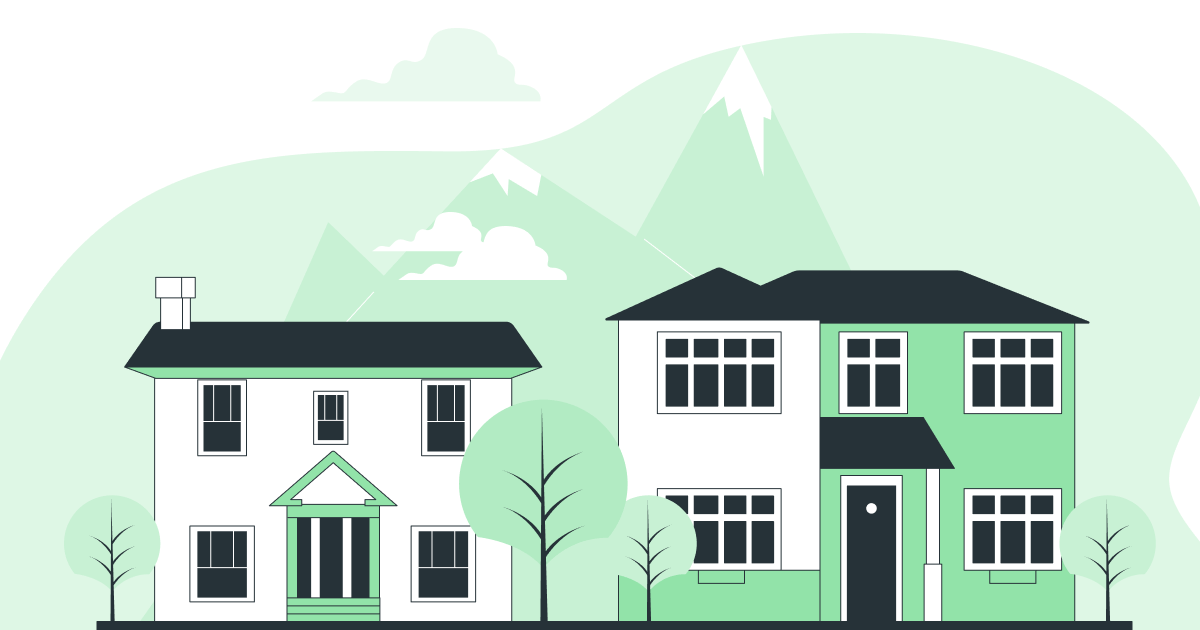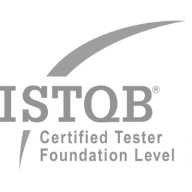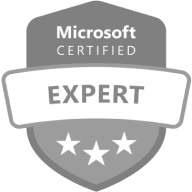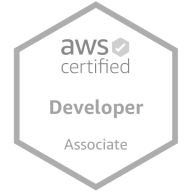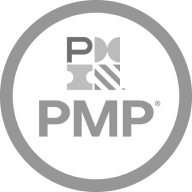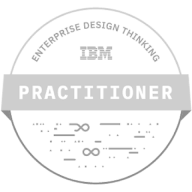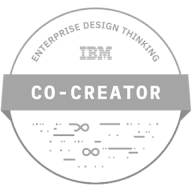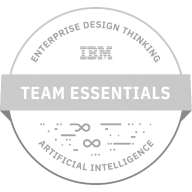
5 Ways to Automate Your Rental Business: Automated Leasing Solutions
Want to know more? — Subscribe
Staying competitive and maximizing operational efficiency are crucial in the fast-paced leasing industry. To achieve these goals, the wise choice is to automate your rental business. It will help you streamline processes, save time, enhance customer experiences, and unlock new profit levels.
As an experienced software vendor with cases in the rental sector, Softermii wants to share its expertise. Today, we will discuss the importance of an automated rental management system, processes to optimize, and practical strategies to maximize output. Also, you will learn about real-world examples and appropriate solution costs.
Understanding Automated Leasing Solutions
Automated leasing property management refers to software that streamlines various aspects of rental business operations. They let companies reduce manual effort, improve efficiency, and enhance user experience. For example, you can use digital tools, databases, and algorithms to automate contract generation, maintenance scheduling, payments, reporting, etc.
However, off-the-shelf solutions may not fully meet your rental business's needs and workflows. By choosing customized software, you can satisfy all unique requirements, integrate with existing systems, and address specific pain points.
Benefits of Automating Your Rental Business
Automating the leasing business offers several key benefits.
Speed
Automate tasks such as property listing, lessee screening, contract generation, and payment processing to save time and reduce manual errors. It helps increase productivity and level up the user experience.
Cost Savings
Want to reduce staffing needs and allocate resources more efficiently? Automated routines and repetitive tasks are an option. This way, you streamline expense tracking, invoice generation, and payment processing, minimizing administrative costs.
Improved Accuracy
Reduce the likelihood of human error to ensure correct data entry and accurate calculations. As a result, it helps prevent potential discrepancies, financial losses, and misunderstandings with clients.
Flexibility
Automation is all about real-time access to data and analytics, helping you make informed decisions about pricing, occupancy rates, maintenance schedules, and more. Also, it facilitates remote management, optimizing efficiency and maximizing returns.
Compliance
Automated systems assist with collecting and storing necessary documentation, verifying client information, and generating legal contracts. As a result, you reduce the risk of non-compliance, potential disputes, and regulatory issues, providing peace of mind for all participants.
Enhanced Communication
Seamless communication between landlords, equipment owners, and renters is closer than you think. Features such as automated reminders, notifications, and messaging platforms can improve responsiveness, keep all parties informed, and address inquiries promptly.
How to Automate Your Rental Property Business: 5 Popular Ways
Now that you know more about solution benefits, let's discuss what automation strategies you can use:
1. Transactions and Rent Renewals
Payment automation in a rental business involves implementing various methods:
- Electronic payments. Rental businesses can set up online payment portals where clients can securely make rent payments using their bank accounts.
- Credit cards. Let lessees create recurring scheduled payments using their credit cards, transferring money directly to your account.
- Fund transfers. You can use online banking platforms, mobile banking apps, or automated clearinghouse (ACH) systems for fund transfers.
- Payment gateways. They integrate with credit cards, electronic payments, and fund transfers, acting as intermediaries between renters, leasing companies, and financial institutions.
2. Inventory Management
By automating property management, you can get several benefits:
- Centralized inventory management. By automating it, you easily track and update the status of each asset in real-time, ensuring accurate information.
- Online listings and portals. Rental listings integrate with the centralized inventory management system or real estate crowdfunding platform, reducing the risk of advertising unavailable assets.
- Automated asset tracking. Tag each rental asset with a unique identifier. This way, the system reads it and updates the availability status automatically.
- Integration with booking and reservation systems. This prevents double bookings and ensures that assets are not shown as available during reserved periods.
- Automated notifications. When a property, vehicle, or equipment becomes available due to a cancellation or return, an automated notification can be sent to interested parties.
- Analytics and reporting. Make data-driven decisions regarding asset allocation, pricing, and management strategies.
3. Complaints and Reviews
Promptly addressing customer concerns leads to great business results:
- Customer satisfaction and retention. Promptly resolving complaints and addressing issues enhances customer satisfaction and build stronger relationships.
- Reputation management. Quickly address user concerns and provide satisfactory resolutions to mitigate the impact of negative online reviews and maintain a positive brand image.
- Customer feedback and improvement. Gain insights into potential gaps or weaknesses in your processes, services, or customer experience.
- Competitive advantage. Positive reviews and a reputation for excellent service can attract more renters, increase market share, and boost long-term business growth.
- Staff motivation. When employees see that their efforts in resolving customer issues are valued and lead to positive outcomes, it boosts their confidence and job satisfaction.
4. Automated reminders
Setting up automated reminders and notifications offers several significant benefits:
- Task and deadline management. Sending lease renewal notices, scheduling property inspections, or conducting maintenance tasks ensure that essential activities are not overlooked or delayed.
- Time management. Your employees can focus on other productive activities while relying on the system to send notifications.
- Reduced late payments. Deliver timely reminders to renters to increase the likelihood of on-time payments, minimizing cash flow disruptions.
- Compliance and legal obligations. Automated reminders give lessors and lessees sufficient time to make informed decisions and adhere to contractual requirements.
- Streamlined communication. Instead of relying on manual follow-ups or phone calls, automated notifications ensure that relevant parties receive the necessary information on time.
- Scalability. Whether managing a few properties or an extensive portfolio, the system can handle escalations and send reminders to all renters and employees.
5. Electronic Contracts and Signatures
Implementing electronic contracts and signatures in rental businesses offers several benefits:
- Efficiency in contract generation. Use templates with pre-filled information, customizing it based on the specific rental agreement to save time and effort.
- Instant delivery and access. Forget about printing, mailing, or physically delivering paper contracts. Lessees access them immediately, review the terms, and sign, streamlining the process.
- Enhanced accuracy and version control. Your clients will sign the most up-to-date contract version, reducing confusion and ensuring accuracy in the rental agreement.
- Time-stamped audit trails. Audit trails provide evidence of the parties involved, the timing of signature completion, and any modifications made to the contract.
- Secure and legally binding. Advanced encryption and authentication technologies guarantee the integrity and authenticity of electronic signatures.
Examples of Leasing Software Solutions
There are several popular examples of automated leasing solutions available on the market.
Avis
Avis is an automated rental management system that offers a wide range of vehicles for various travel needs. With a global presence, Avis streamlines rental procedures, leading to a smoother customer experience and improved operational efficiency.
Strengths:
- Widespread network of rental locations globally.
- Diverse fleet of vehicles, ranging from economy to luxury cars.
- User-friendly online platform and mobile app.
- Loyalty program called Avis Preferred.
- Dedicated customer support team.
Weaknesses:
- Additional fees or charges not clearly communicated during the booking process.
- Limited vehicle availability or higher rental rates during peak travel seasons.
- The presence of certain vehicles, pricing structures, and additional services may vary by region or country.
Rentman
Rentman is a cloud-based software that provides management solutions for event and equipment rental companies. It centralizes and automates various aspects of the leasing workflow, including handling inventory, order processing, scheduling, and customer relationships.
Strengths:
- Mobile app for on-the-go access and functionality.
- Customizable reporting and analytics.
- Integrations with accounting, CRM, and project management tools.
Weaknesses:
- The pricing structure may be not profitable for some business types
- Limited customization options for certain features.
- Custom support issues during peak periods or for users in different time zones.
Rentec Direct
Rentec Direct is an automated leasing software suitable for landlords managing several objects or property managers with thousands of them. It covers tenant screening, accounting, maintenance task tracking, online payments, and other rental processes.
Strengths:
- Affordable pricing plans are suitable for smaller rental businesses.
- Customizable income reports and access to historical data.
- Integration with popular rental listing sites for easy property advertising.
Weaknesses:
- A user interface may be less intuitive compared to other solutions.
- Limited availability of mobile apps for all platforms.
- Some users have reported occasional delays in customer support responses.
- Advanced features may require higher-tier pricing plans.
Softermii also has robust experience in delivering rental software empowered by AI/ML, IoT, videoconferencing engines, and AR/VR. Let’s review some examples of real estate app development:
- An application for the French Real Estate Association allows users to see available properties in real-time, compare offers, and manage properties.
- The Proper solution makes it easy for tenants to report any issues, remind landlords of outstanding requests, and hire professionals to resolve them.
- The platform for landlords and tenants RadPad has built-in payments and high privacy with two-factor authentication and mandatory identity verification.
Best Practices for Successful Automated Leasing Software Development
Successful rental leasing automation requires adherence to best practices to ensure optimal results and a smooth implementation process:
- UI/UX design. Conduct research to define user needs and pain points. Prioritize user-friendly interfaces and intuitive navigation with instructions and error messages.
- Data management. Ensure data accuracy, consistency, and integrity through validation, standardized formats, and proper cleansing practices. Implement backup and recovery mechanisms to safeguard data in case of system failures or disasters.
- System security. Encrypt sensitive information and conduct regular security audits to identify and mitigate potential risks.
- Compliance and regulations. Ensure the automation solution complies with relevant industry regulations, data privacy laws, and lessee protection guidelines.
- Scalability. Use cloud computing platforms and distributed databases to handle increasing data volume. Break down the automation solution into smaller, manageable modules that can be independently deployed and scaled.
- Thorough testing. To identify and fix bugs, conduct comprehensive functionality, performance, acceptance, usability, and security testing.
- User training and support. Offer user guides, video tutorials, or interactive training sessions to familiarize clients with the system's features and workflows. Establish a helpdesk or ticketing system to address user queries and issues promptly.
How Much Does it Cost to Implement Automated Leasing Software?
The costs for a custom solution can vary significantly based on factors such as complexity, functionality, and the development resources required.
Here's a table outlining approximate cost ranges for a custom leasing automation solution:
|
Development Stages |
Hours |
Cost |
|
|---|---|---|---|
|
1 |
Discovery & Research |
280 hours |
$11 200 |
|
2 |
Development |
640 hours |
$25 600 |
|
3 |
Testing |
240 hours |
$9 600 |
|
4 |
Creating technical documentation |
40 hours |
$1 600 |
|
Total |
1 200 hours (5 month) |
$48 800 |
|

|
|||
Please keep in mind that this is merely an approximate breakdown of the costs, and the final pricing of the rental leasing application development can vary depending on multiple aspects such as the quantity of features, team structure, deadlines, among others. Consequently, should you need a more precise forecast, don't hesitate to contact us for a free quote.
To reduce the cost of rental leasing automation, consider the following advice:
- Start with core functionalities and gradually expand as needed, spreading out the associated costs over time.
- Agile methodology allows for frequent feedback and adjustments, making timely changes before they lead to significant expenses.
- Explore free or open-source automation solutions that may meet your basic needs without requiring hefty financial investments.
- Leverage existing technology infrastructure and systems where possible to reduce the need for additional hardware or integration efforts.
- Outsource development to reduce labor costs while ensuring access to skilled professionals.
- Invest in comprehensive testing and quality assurance to identify and address issues early in the development cycle.
Conclusion
Automation offers numerous benefits for property owners and managers, equipment leasing businesses, and vehicle rental services. You can streamline operations, boost time savings, reduce paperwork, and provide a better customer experience. Modern software provides digitalization for managing transactions, inventory, complaints, reminders, and electronic contracts.
Customized leasing software solutions are tailored to the specific needs of rental businesses and industry trends. If you want to develop automated leasing solutions, consider partnering with Softermii, a reliable outsourcing vendor. Contact us today to discuss your requirements and ways to drive your rental business forward.
Frequently Asked Questions
What areas of a rental business can be automated?
You can automate transactions, inventory management, notifications, electronic contracts, renter screening, maintenance requests, and financial reporting. This way, businesses can enhance efficiency, reduce manual work, improve customer experience, and gain better insights into their rental operations.
How long does it take to implement automated leasing software?
The time required to implement an automated solution can vary depending on project complexity, team size, and availability. Generally, short-term rental automation can take several weeks to a few months.
What considerations should I keep in mind when developing automated leasing solutions?
When developing an automated rental management system, it's crucial to consider system security to protect sensitive data, scalability to accommodate future growth, and engaging user experience. Additionally, prioritize thorough testing, gather user feedback, and emphasize continuous improvement.
How about to rate this article?
90 ratings • Avg 4.5 / 5
Written by:













